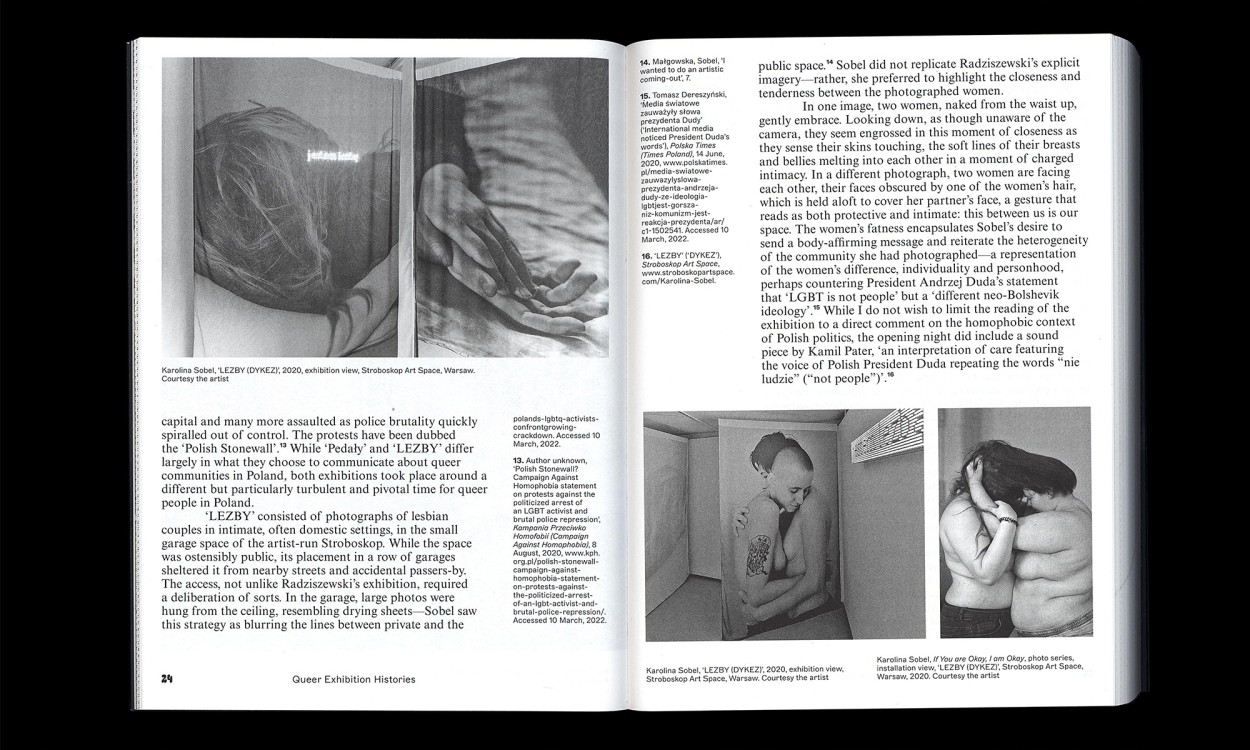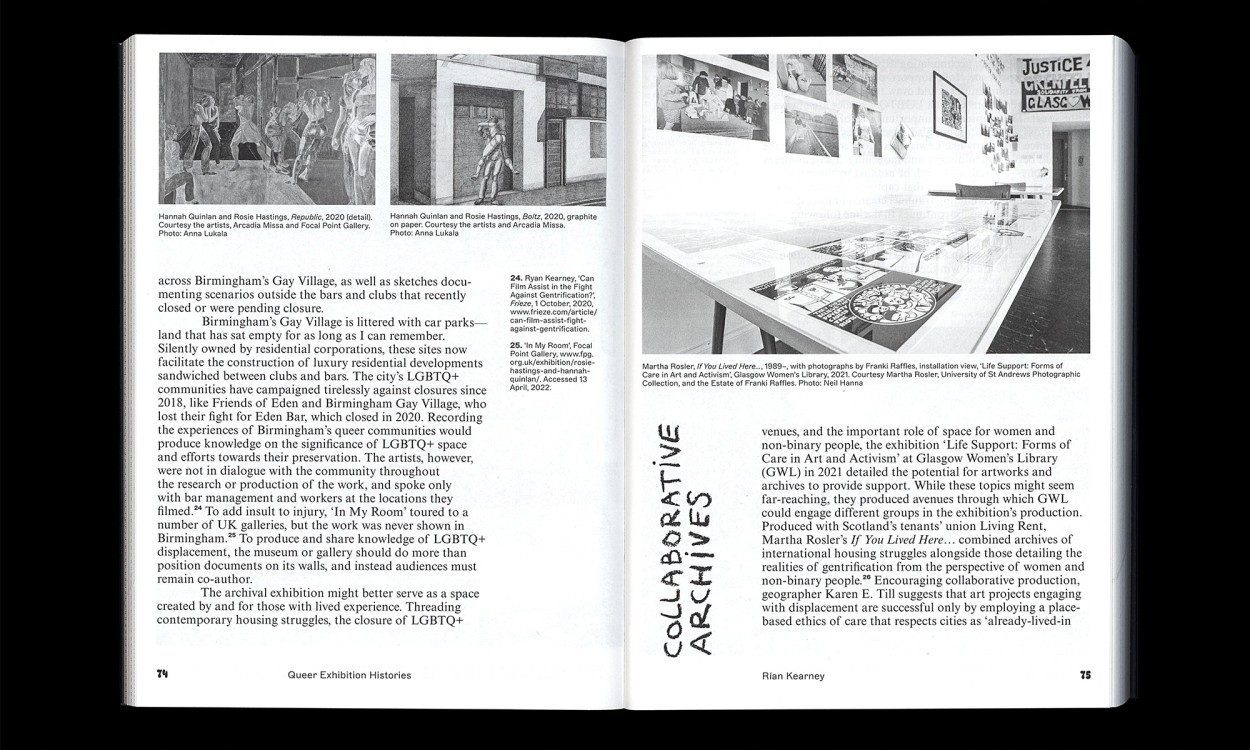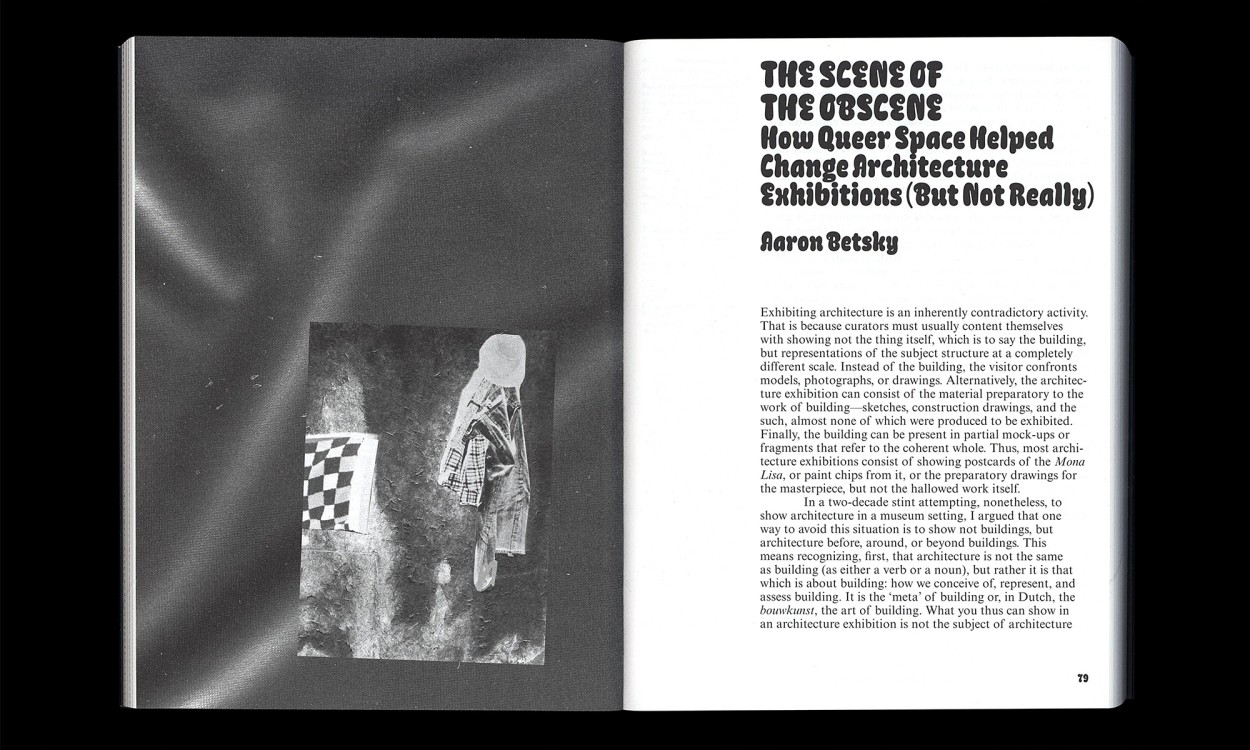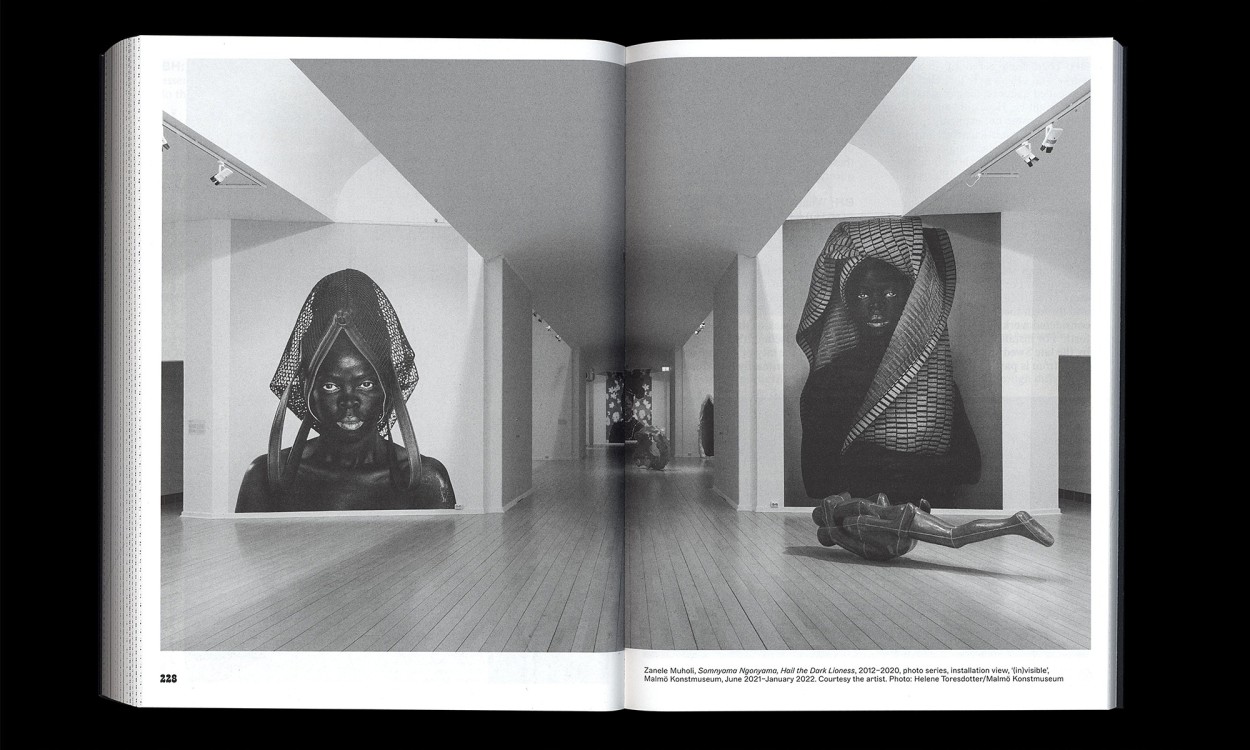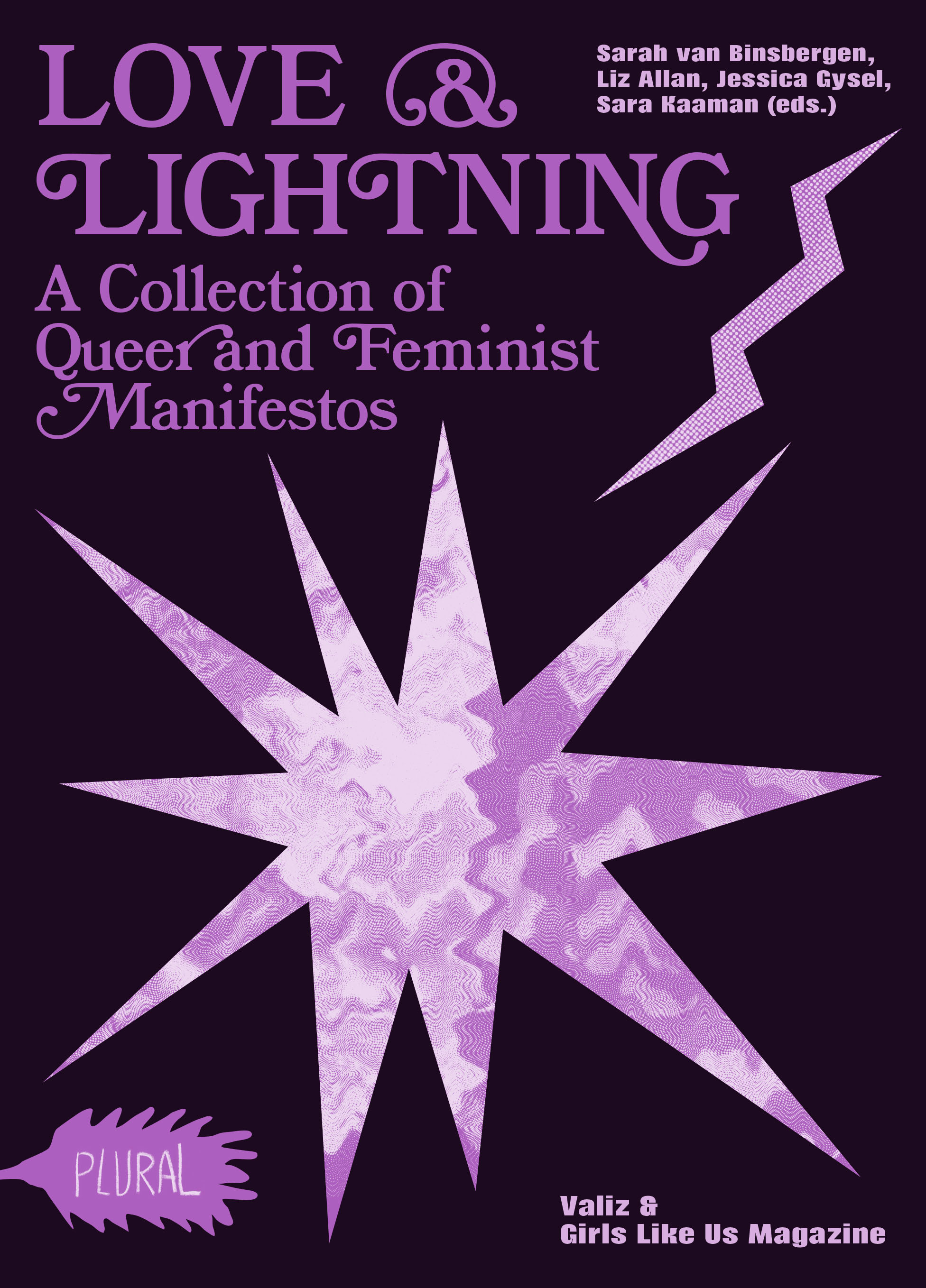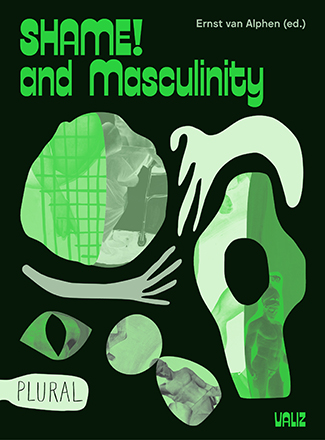Queer Exhibition Histories
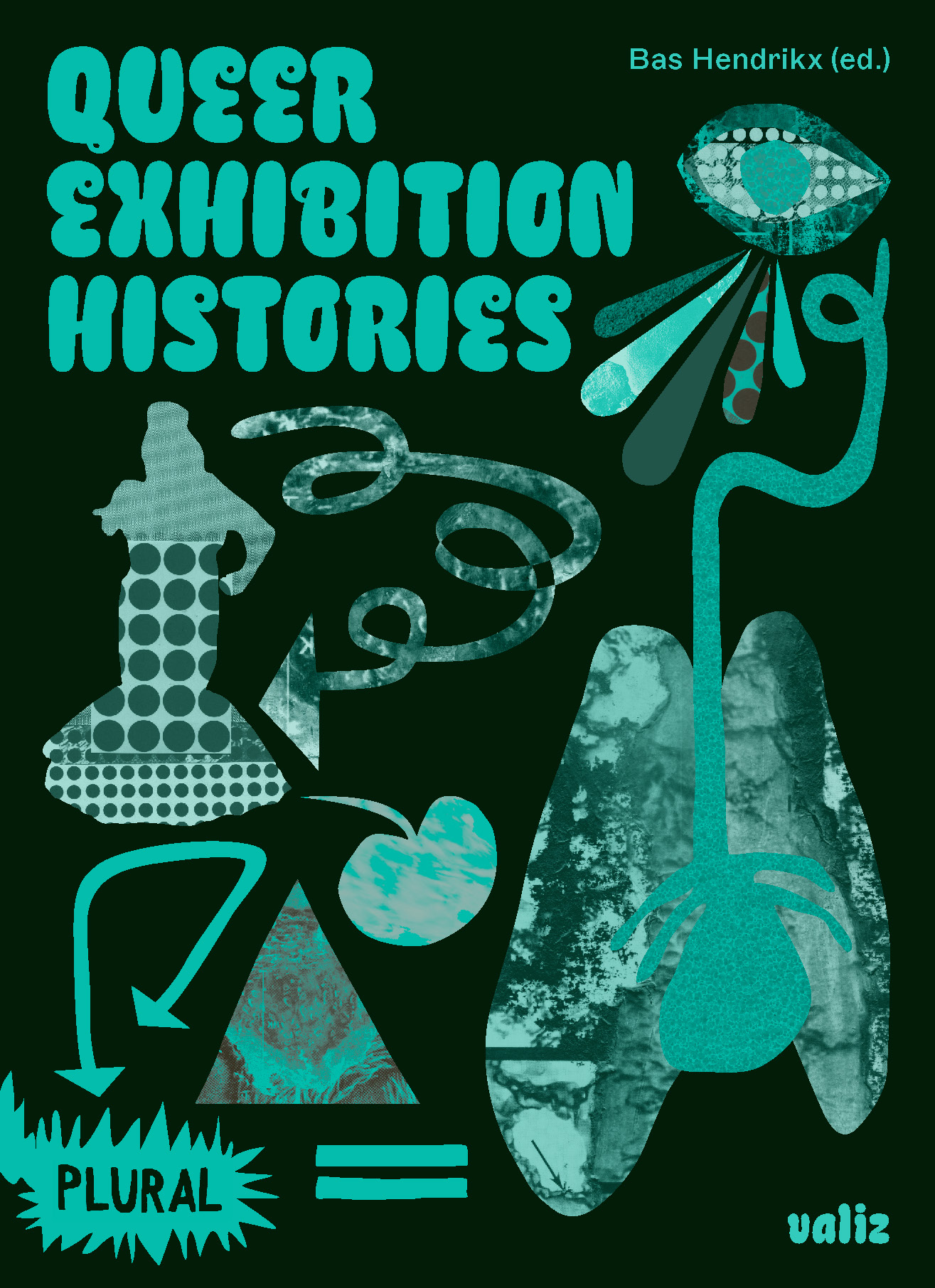
- Highlights the efforts of LGBTQIA+ artists and curators that have advanced the LGBTQIA+ presence in museums and society alike
- Brings queer exhibitions out of their niche in an attempt to make them into a full part of the art canon
- Dives into (personal) archives to uncover these alternative histories
Editor: Bas Hendrikx
Editorial committee: Bas Hendrikx, Léon Kruijswijk, Valentina Iancu
Contributors: Tawanda Appiah, Aaron Betsky, Boudry/Lorenz, Övül Durmuşoğlu, Aleksandra Gajowy, Halyna Hleba, Jessica Gysel, Bas Hendrikx, Kateryna Iakovlenko, Valentina Iancu, Katrin Kivimaa, Rían Kearney, Leonida Kovač, Léon Kruijswijk, Élisabeth Lebovici, Edwin Nasr, Peaches, Katarina Pirak Sikku, François Piron, Rebeka Põldsam, Karol Radziszewski, Sylvia Sadzinski, Sara Salminen, Airi Triisberg, Eugenio Viola, Liang-Kai Yu
Design: Lotte Lara Schröder
Series: PLURAL
July 2023, Valiz, with support from Mondriaan Fonds, Prins Bernhard Cultuurfonds, Hendrik Muller Fund; Research supported by Mondriaan Fonds, Amsterdam Fonds voor de Kunst | paperback | 23 x 17 cm (h x b) | 288 pp. | English | ISBN 978-94-93246-13-3 | € 27,50
In the media:
- (Only in Dutch) Click here to read the review of Queer Exhibition Histories by Laura Herman in De Witte Raaf (226, november-december 2023)
Queer Exhibition Histories comprises case studies highlighting the countless efforts, both large and small, of LGBTQIA+ artists and curators, centring on queer art exhibitions and their modes of documentation and archiving. Often, the legacy of these projects largely depends on personal archives, memories, and paraphernalia, with the overriding notion, or need, for public display. In these contexts, ‘public’ is relative in events that were either short-lived, held under the veil of domestic spaces, or kept exclusive for those ‘in the know’. Therefore, they were not exclusively artistic, but could equally be discursive, activist, educational, or serve as a tool for community building. At the intersection of queerness and contemporary art, this volume considers how the efforts of LGBTQIA+ artists have advanced their public presence in museums and society alike.

